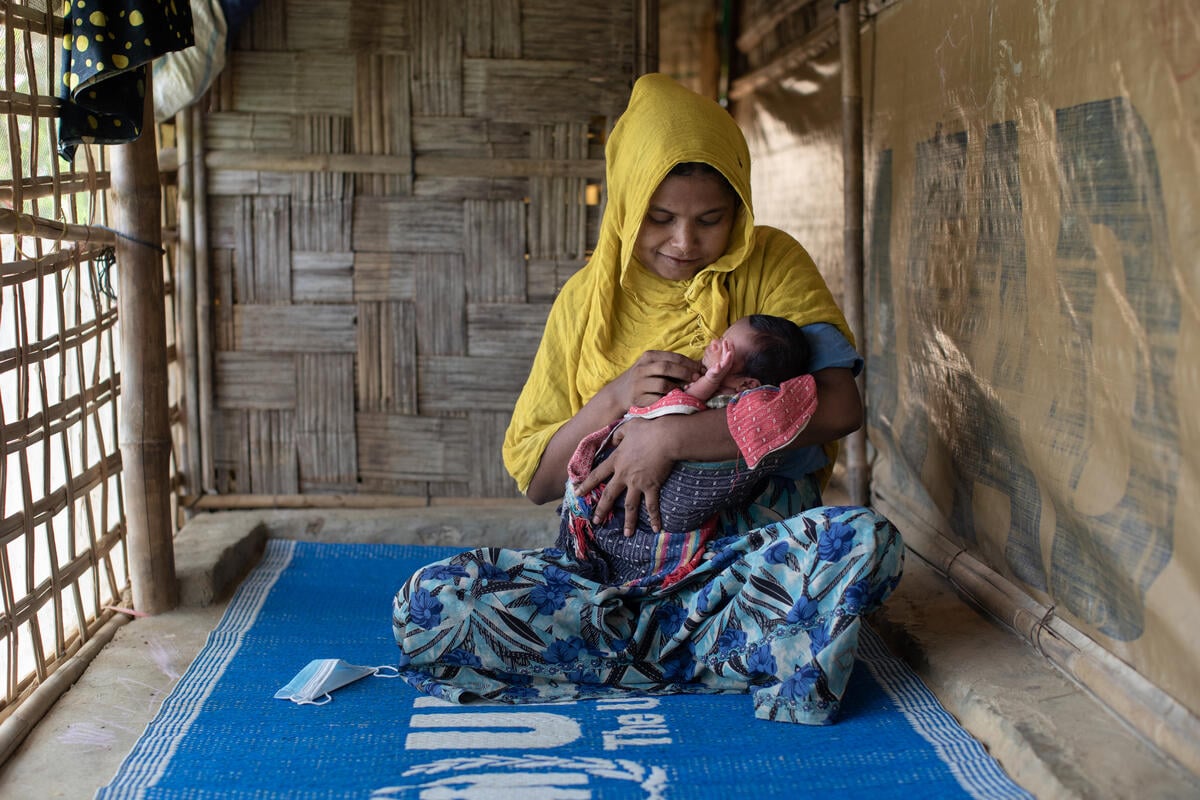Celebrities visit refugee camp in Ethiopia after scaling Kilimanjaro
Celebrities visit refugee camp in Ethiopia after scaling Kilimanjaro

KEBRIBEYAH REFUGEE CAMP, Ethiopia, January 18 (UNHCR) - Fresh from climbing Mount Kilimanjaro, actress Jessica Biel and musicians Kenna and Santi White, have visited a refugee camp in Ethiopia to see how water shortages affect the lives of millions of forcibly displaced people across Africa.
The American entertainers, together with Elizabeth Gore, executive director of global partnerships at the United Nations Foundation, toured Kebribeyah Refugee Camp last Friday, three days after scaling Africa's highest peak. The camp in eastern Ethiopia hosts some 16,500 Somali refugees who have fled persecution and conflict in their country.
The "Summit on the Summit," was organized by Kenna to highlight global water shortages, which affect more than 1 billion people, and to raise funds for UNHCR and other organizations helping to meet the water needs of the vulnerable. Others in the climb included actors Emile Hirsch and Isabel Lucas, rapper Lupe Fiasco, conservationist and explorer Alexandra Cousteau, environmentalist Kick Kennedy and award-winning photographers Michael Muller and Jimmy Chin.
In Kebribeyah, Biel and her VIP colleagues saw and heard how shortages of clean water affect all aspects of life in the camp while also gaining insight into how water shortages are tackled by organizations like the UN refugee agency.
"When I became a refugee in 1991, we hardly had two litres of water per person per day; we now get up to 15 litres a day, but that is still far from being sufficient." Habiba Ali Oumer, a refugee representative, told the visitors. She urged them to help. UNHCR is constantly looking at ways to boost water supply. The daily recommended consumption is 15-20 litres per person per day.
"I am really taken by the resilience of the Somali refugees," a visibly touched Biel said after listening to Oumer. "I want to ensure that all those kids I met in the camp school continue to get clean water," she added.
The celebrities spent the whole day visiting the camp infrastructure installed by UNHCR, including the school. "When I grow up, I would like to do something worthwhile for myself, my family and my country," one young student told Biel.
Money raised by the "Summit on the Summit" campaign will be distributed through the UN Foundation to UNHCR and several other groups, including the Children's Safe Drinking Water Programme (CSDW) and Water For People and Playpumps International. The Foundation's Gore said people could continue donating until Word Water Day on March 22, "by which time we expect to raise enough resources to cover the needs we saw in the camp, and perhaps more needs in other camps in Ethiopia."
Ethiopian-born Kenna, whose uncle died of a water-borne disease, was impressed by what he saw in Kebribeyah. "I'm particularly happy to learn that UNHCR runs the water system for the refugees in partnership with the local Ethiopian authorities," he said, pledging to raise enough to upgrade and maintain the system.
UNHCR Deputy Representative in Ethiopia Cosmas Chanda said provision of water was a critical element of UNHCR's protection work and his office welcomed the keen interest shown in the plight of refugees by such high-profile personalities. "We welcome their effort in fund-raising on behalf of refugees."
The eastern region of Ethiopia, where UNHCR helps some 60,000 Somali refugees in four camps, is dominated by semi-arid lowlands with an annual average rainfall of 300mm-500mm. There are no permanent rivers running through the sites where the refugees are staying. Providing adequate amounts of safe drinking water is a daily struggle for UNHCR and its partners.
The inhabitants of Kebribeyah depend on the Jarrar Valley Water Supply System, which pipes water to the camp from a distance of some 20 kilometres. Two of the system's six boreholes have been connected to the national electricity grid in recent months, making supply of water to the camp more reliable. When the project is complete, the daily supply per person should rise to 20 litres. Increasing the number of water points in the camp is another challenge.
By Kisut Gebre Egziabher in Kebribeyah Refugee Camp, Ethiopia








